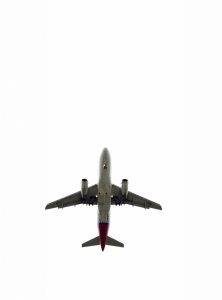IATA Wheelchair Assistance Workshop
By PVA National Staff
On December 3, Senior Associate Advocacy Director, Lee Page, attended the International Air Transport Association’s (IATA) workshop on wheelchair and disability assistance at JFK International Airport. The workshop was supported by the Port Authority of New York and New Jersey and the JFK Terminal 4 Airlines Consortium. Attendees included representatives from the U.S. Department of Transportation, airlines, airports, travel agents, and disability organizations.
The Air Carrier Access Act of 1986 requires airlines to support disabled passengers in navigating the airport experience. No description or documentation of the disability being accommodated is required. According to the airlines, a significant percentage of persons requesting wheelchair support are not technically disabled. Rather many people are asking for wheelchair support in order to avoid walking long distances, to get through security lines faster, or for help in finding their gate or baggage claim area.
Wheelchair assistance represents a significant and growing cost to airlines. At JFK alone, it is estimated that airlines provide more than 1.4 million wheelchairs pushes each year (out of a total of approximately 65 million passengers), with an average cost of $35 per push ($70 round trip). Other major U.S. airports are seeing a similar volume of requests.
A 2018 IATA survey found that the number of wheelchair assistance requests increased by 30 percent globally between 2016 and 2017. The survey found that the reasons for request were age (elderly passengers), distance (unable to walk), language challenges, temporary disabilities (medical conditions), and way-finding (worried about being lost in the airport).
The main objectives of the workshop were to: 1) assess the magnitude of the wheelchair assistance problem; 2) find ways to reduce the rate of wheelchair assistance by advocating for alternative service to those passengers who are not disabled but need assistance to navigate the airport; 3) promote dialogue between disability associations, policymakers, and industry for a regulatory framework that eliminates operational complexity and increases access to air transport for persons with disabilities; and 4) analyze the results of the workshop and provide recommendations for the ways to address this challenge.



